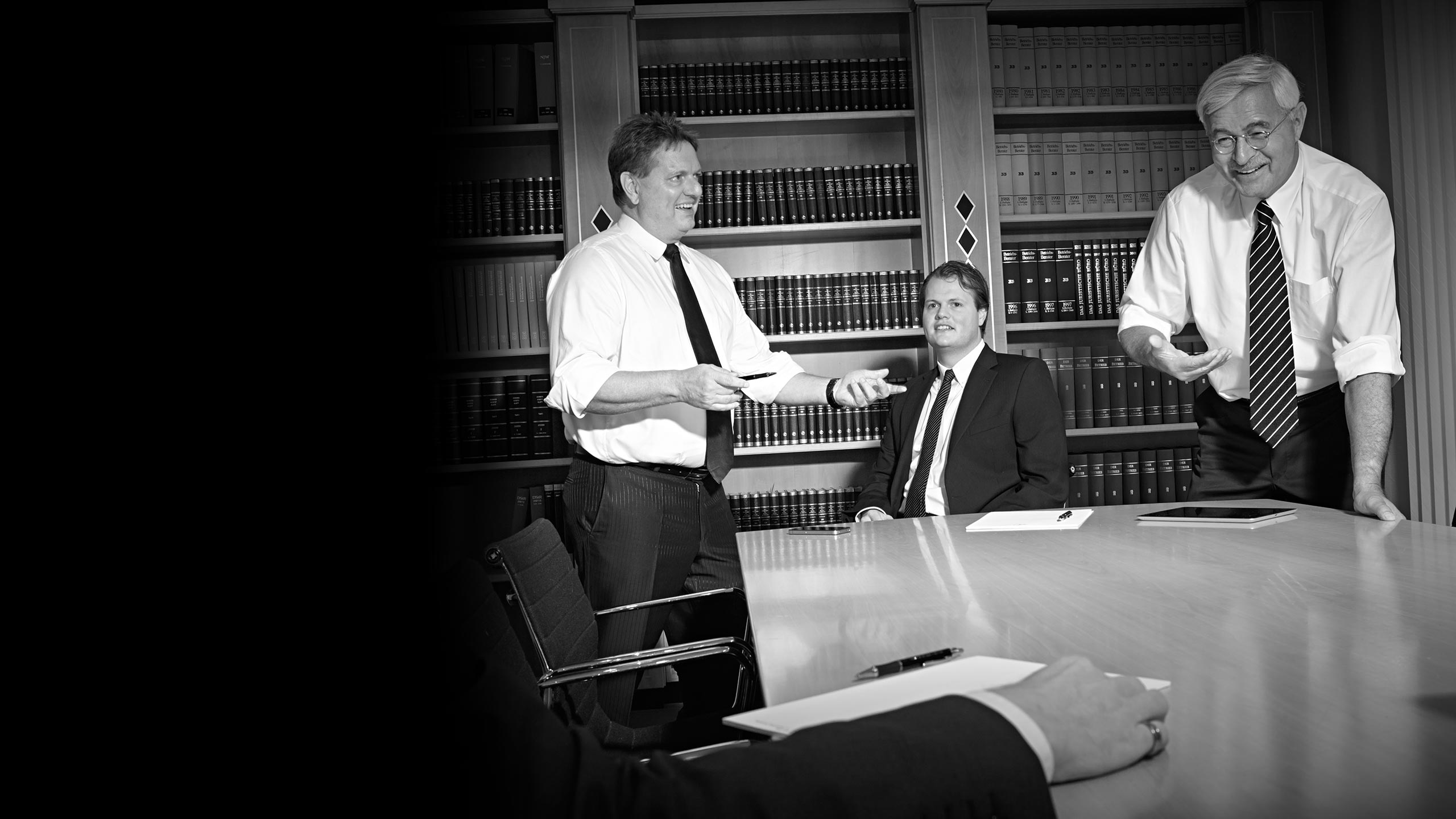Asset succession
We have an excellent competence in the configuration and execution of corporate successions. Corporate succession describes the management and equity transfer of entrepreneurial skills (wholly or partly) from one or several transferring entrepreneur(s) to the acquiring future entrepreneur(s).
Each transfer situation is structured differently.
The following aspects have to be taken into consideration amongst others:
- Date of transfer
- Remuneration of the successor
- Contractual configuration
- Terms of payment
- Legal form of the operation
- Alternatives for succession within the family, for instance by sale
The execution requires careful and systematic preparation so that the company suffers no detriment over the course of the transfer and the company value does not fall.
The involvement of specialists with the preparation and monitoring is essential.
The basic alternatives for a corporate succession are:
- Family members of the owner or relatives continue to manage the business and take over the shares
- Employees from the company take over the company within the framework of an MBO (management buy-out)
- Sale of the company to a third party
Which of the possibilities is realistically implementable or ideal in an individual case can only be checked by careful analyses in advance. We are available for this with many years of experience from numerous succession plans and transformations.
There are essentially three stages:
Stage 1 - preparatory stage
The preparations in stage 1 are carried out predominantly in the form of analyses of the available documents, such as annual financial statements,
market analyses, product overviews, business plans, but also in personal discussions with the shareholders and the management in order to clarify
the setting of objectives and constraints. Typically, both organisational and structural changes are required with a company so far owner-managed
in order to prepare a transfer. As a result of stage 1, it should be possible to determine whether the successor should rather be a natural person
or whether a sale to another company is more sensible. The question of purchase price determination and the structuring of the transaction has particular importance especially with succession arrangements, as the transition stage from the old to the new owner must be correctly configured in this regard.
There is essentially a series of configuration possibilities, which have to be tailored to the situation of the company and of the people.
For this reason, specialist guidance with a succession arrangement often has a much more developed consulting approach than a normal corporate transaction.
Stage 2 - implementation stage
The implementation stage starts after determination of the appropriate route for the corporate succession. This includes implementation of the required internal structural changes. Depending on the chosen form, the potential assignee – if no suitable successor is available in the family - is sought and approached. The preparation of a due diligence and of contractual negotiations starts in stage 2. Both are structured and monitored by us.
Stage 3 - transition stage
After the successful conclusion of contractual negotiations, the transition stage is carried out, which should ensure that the transfer from the present to the new owner is effected as smoothly as possible. For a controlled transfer, it should be determined in what form, when and by whom the communication to employees, business partners and customers should be carried out. We are familiar with all the alternatives of corporate succession and can give the best possible guidance to you taking into account personal concerns and wishes.

